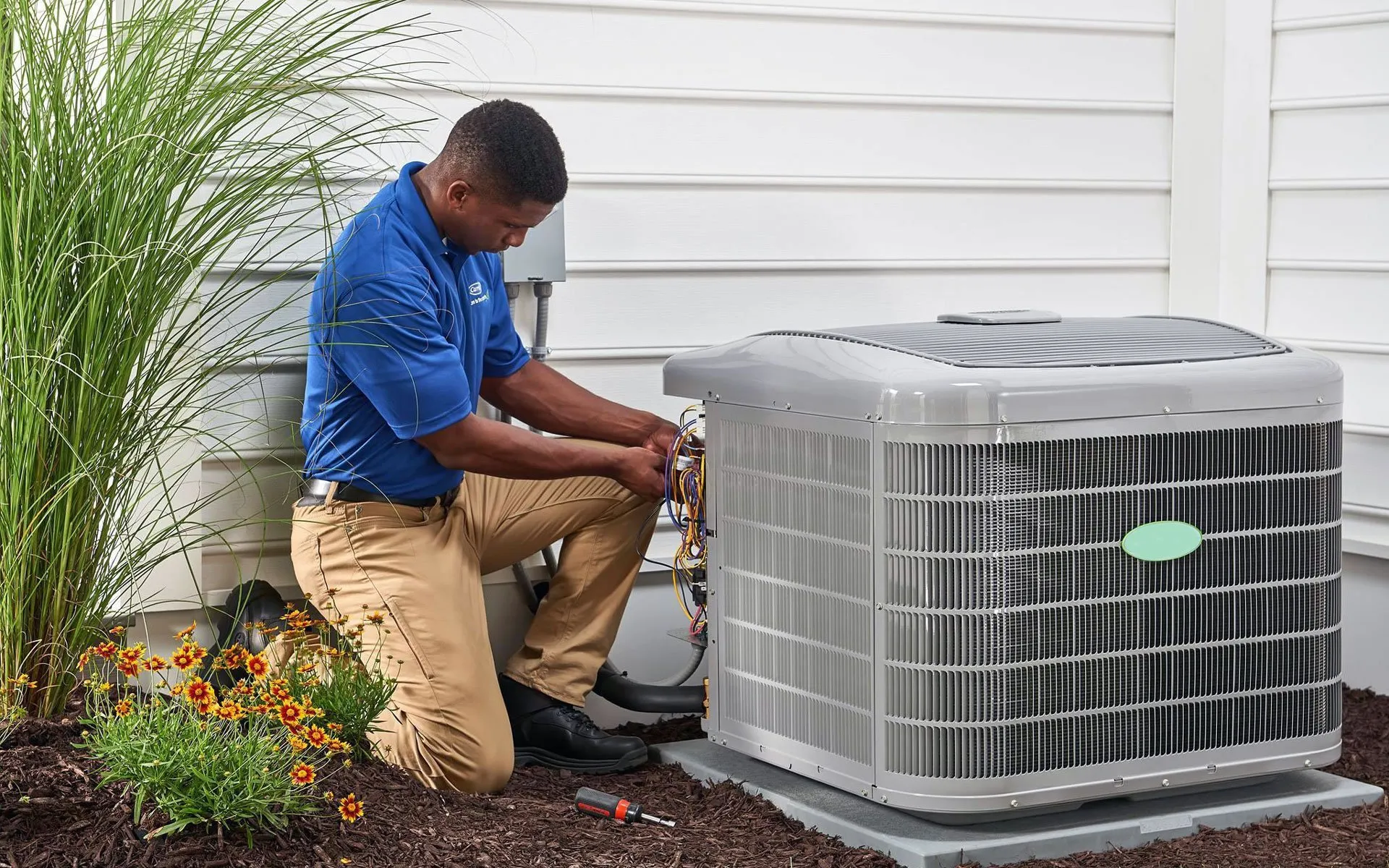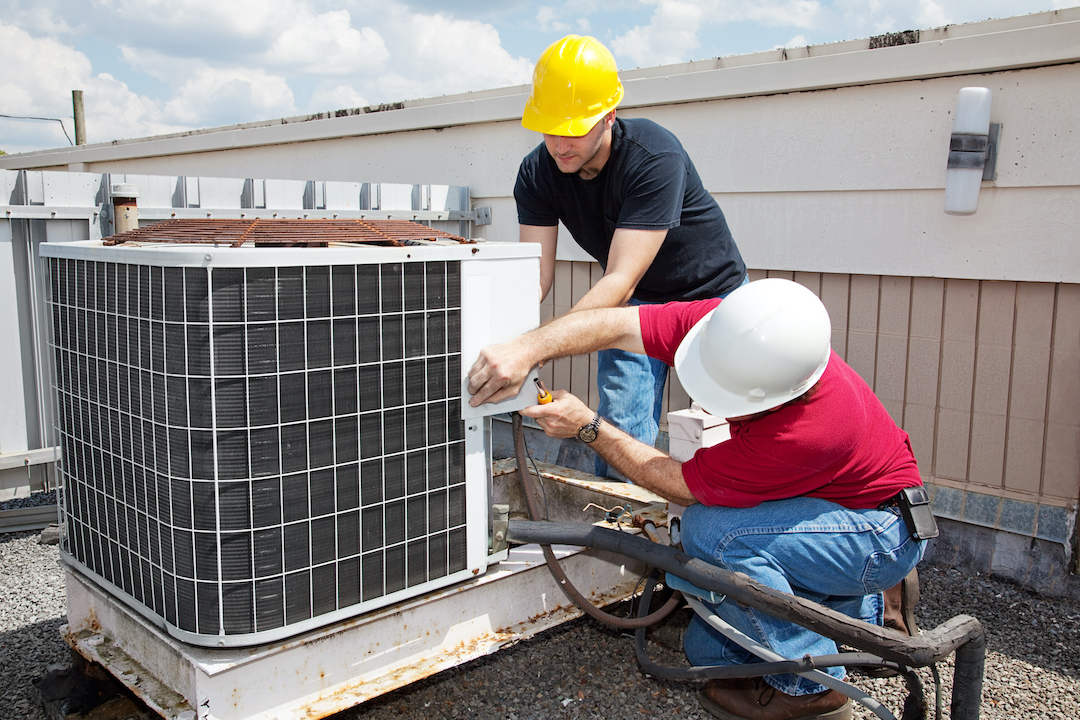How ductless mini splits Compare to Traditional HVAC Setups
Wiki Article
Choosing In Between a Heat Pump and Heater: Key Factors To Consider for Your HVAC Requirements
When examining heating choices for a/c needs, the decision between a warm pump and a heating system can be intricate. Each system provides unique benefits customized to specific climates and power performance objectives. Comprehending these differences is essential for making an educated option. Trick factors such as installation expenses and ecological influence additionally make complex the selection process. Which option absolutely aligns with one's convenience and sustainability preferences? The following sections will discover these considerations in detail.Understanding Warm Pumps: How They Function and Their Benefits
While numerous homeowners take into consideration different home heating options, understanding how heatpump feature and their advantages can substantially affect their decision. Warm pumps operate by transferring warmth instead of generating it. In the winter, they remove warm from the outdoors air or ground and transfer it inside your home, while in the summer, they reverse this process, cooling down the home by eliminating heat outside. This double functionality makes them functional for year-round environment control.One of the key advantages of heatpump is their energy effectiveness. They make use of considerably less power compared to conventional heating unit, possibly causing lower utility costs (heat pump replacement ooltewah tn). Additionally, warmth pumps have a smaller carbon footprint, making them an eco-friendly option. They likewise call for less upkeep than conventional systems, contributing to lasting price savings. On the whole, comprehending the auto mechanics and benefits of heat pumps can aid house owners make informed choices concerning their home heating and cooling down requirementsDiscovering Furnaces: Kinds, Operation, and Benefits
Furnaces can be found in numerous types, consisting of gas, electric, and oil models, each with distinct operational systems. Recognizing these distinctions is important, as they affect efficiency and heating efficiency. In addition, heating systems use countless advantages, such as constant warm outcome and reliability in cooler environments.Sorts of Furnaces
Heater can differ significantly in design and procedure, with heating systems being a preferred option among homeowners. There are numerous kinds of furnaces, each making use of various fuel resources and innovations. Gas furnaces are usual, leveraging gas to create heat successfully. Electric heaters, on the various other hand, use electrical resistance to produce heat, frequently preferred for their simple installation. Oil furnaces, while less typical, work in locations with restricted gas access (ductless mini splits). Additionally, condensing heating systems make best use of energy performance by reusing and capturing exhaust gases. Each kind runs via a system of heat exchangers and ductwork to disperse cozy air throughout a home. Comprehending the distinctions in between these heating system kinds is crucial for notified heating and cooling decisionsAdvantages of Heaters
For homeowners looking for trusted warmth during chilly months, the advantages of heating systems are considerable. Heating systems give regular home heating, making sure even temperature levels throughout the home. They are particularly reliable in extreme chilly, typically surpassing heatpump in frigid conditions. Different kinds, including gas, electric, and oil heating systems, use flexibility to satisfy varied needs and preferences.Furnaces additionally often tend to have lower preliminary installment prices contrasted to warm pumps, making them a more accessible choice for lots of. Their durable style contributes to a longer lifespan, with numerous systems lasting over 15 years with appropriate maintenance. Additionally, contemporary furnaces are usually equipped with advanced modern technology for improved efficiency, which can lead to reduced power costs. On the whole, heating systems continue to be a dependable choice for effective home heating.
Energy Effectiveness: Comparing Warm Pumps and Furnaces
When contrasting energy effectiveness between heatpump and furnaces, the Seasonal Power Performance Ratio (SEER) plays a necessary role in figuring out efficiency. Additionally, a functional cost evaluation discloses the long-lasting economic implications of each system. Recognizing these elements can assist property owners in making educated decisions concerning their heating remedies.Seasonal Power Effectiveness Ratio
Power effectiveness plays a necessary function in the decision-making process in between heatpump and heaters, especially when thinking about the Seasonal Power Efficiency Proportion (SEER) This statistics steps the cooling efficiency of heatpump over a whole air conditioning period, giving a standardized way to assess performance. Higher SEER ratings indicate greater power performance, translating to reduced energy intake and reduced utility costs. On the other hand, heating systems are commonly analyzed making use of the Yearly Gas Use Performance (AFUE) score, which shows heating effectiveness. When comparing these two systems, property owners ought to prioritize SEER ratings for heat pumps, as they straight effect overall power financial savings and environmental other sustainability. A detailed understanding of SEER can especially affect the long-lasting complete satisfaction and cost-effectiveness of the chosen HVAC solution.Functional Price Evaluation
Comprehending the operational costs associated with heatpump and heating systems is important for property owners examining their options. Heatpump normally offer greater power efficiency, transforming electrical energy right into warmth with minimal waste. This results in reduced monthly energy bills, specifically in moderate climates. Conversely, typical heaters, especially gas models, might have lower upfront prices however can sustain higher functional expenses gradually due to sustain prices and effectiveness ratings.Moreover, heatpump can work as both home heating and cooling systems, possibly reducing the requirement for separate cooling and heating units. While preliminary financial investments for heatpump might be greater, their long-term cost savings in energy performance can make them a much more cost-efficient choice for numerous households. Careful analysis of regional energy prices is necessary to establish the most effective choice.Setup Expenses: What to Anticipate for each and every Heater
Setup prices for heating unit can differ substantially in between heat pumps and heating systems, influencing home owners' decisions. Warmth pumps normally have higher ahead of time setup costs, normally varying from $3,500 to $8,000, relying on the unit dimension and complexity of setup. This consists of the outside system, interior handling system, and necessary ductwork adjustments. Conversely, heating systems tend to have lower preliminary prices, balancing between $2,500 and $6,000, which can be appealing for budget-conscious homeowners. Installation expenditures can increase if comprehensive ductwork is required.Moreover, the option of gas kind for furnaces-- natural gas, propane, or electric-- can likewise affect installation expenses. While heatpump provide power efficiency, their first investment may discourage some buyers. Eventually, reviewing installation expenses alongside long-term financial savings and efficiency will certainly help house owners in making educated choices about their furnace.Climate Factors To Consider: Which System Performs Better in Your Location
Just how do climate conditions influence the effectiveness of home heating systems? The performance of warmth pumps and heating systems can vary greatly depending upon the neighborhood climate. In moderate environments, heatpump excel by successfully transferring warm from the outdoors air, making them an energy-saving choice. Their effectiveness diminishes in incredibly chilly temperature levels, where they may battle to draw out enough warm. On the other hand, heaters, especially gas versions, supply trustworthy and consistent warmth despite outside problems, making them more suitable in cooler regions.In areas that experience milder winters months, heatpump can operate effectively year-round, providing both heating & cooling. In contrast, areas with extreme wintertimes commonly benefit from the toughness of heating systems. Eventually, understanding the neighborhood environment is essential when making a decision between a warmth pump and a heating system, as it straight affects their functional effectiveness and go to my blog general efficiency.Upkeep Demands: Long-Term Take Care Of Heat Pumps vs. Furnaces
While both warm pumps and furnaces need normal upkeep to ensure peak performance, their specific needs and treatment regimens differ substantially. Furnaces generally require less constant interest, with annual assessments being adequate to inspect for gas leakages, tidy filters, and assess total capability. Their simpler layout commonly permits simple repairs.In comparison, warmth pumps necessitate semiannual upkeep because of their dual function in heating and air conditioning. This includes cleansing coils, checking refrigerant degrees, and making certain that both the interior and outside systems operate at their best. Furthermore, warm pump maintenance typically includes more detailed elements, making professional servicing essential.Neglecting upkeep can cause reduced efficiency and increased energy costs for both systems. Eventually, homeowners must think about these long-term treatment needs when selecting between a warmth pump and a heating system, as aggressive maintenance can prolong the life-span and performance of either system significantly.Ecological Impact: Selecting a Lasting Heating Alternative
The environmental impact of heating unit is a critical analysis for house owners looking for lasting options. Heatpump are usually a lot more energy-efficient than conventional heaters, as they move heat as opposed to produce it, considerably decreasing carbon discharges. By utilizing eco-friendly energy resources, such as geothermal or air-source heat pumps, house owners can further decrease their ecological footprint.On the various other hand, all-natural gas heaters release greenhouse gases and contribute to air pollution, though they often provide greater heat result. Nonetheless, advancements in innovation have brought about the advancement of high-efficiency heating systems that minimize emissions.Ultimately, picking a furnace entails considering effectiveness versus ecological effect. Homeowners are encouraged to assess neighborhood power resources and rewards for sustainable systems, making sure a selection that straightens with both personal convenience and environmental obligation. The choice affects not only immediate comfort however likewise long-term sustainability see this page and environmental wellness.Often Asked Concerns
For How Long Do Heat Pumps and Furnaces Typically Last?
The life-span of warmth pumps commonly ranges from 15 to 20 years, while heaters can last in between 15 to thirty years. Normal maintenance considerably influences their long life and effectiveness in providing home heating options.Can I Utilize a Warm Pump in Extremely Cold Climates?
Heatpump can run in incredibly cool climates, yet their efficiency diminishes as temperatures decrease. In such problems, supplemental heating resources may be essential to preserve comfortable interior temperatures and ensure peak efficiency.
What Is the Noise Degree of Heat Pumps Versus Furnaces?
The noise levels of warmth pumps and heaters differ substantially. Generally, warmth pumps run more silently than conventional heaters, making them more suitable for those sensitive to appear, while heating systems might create louder functional sounds during heating cycles.
Are Warmth Pumps Suitable for Both Heating & Cooling?
Heatpump are indeed suitable for both home heating and cooling (furnace replacement). They function by moving warmth, offering effective temperature level control year-round, making them a versatile option for homeowners seeking an all-in-one a/c remedyWhat Size Home Heating System Do I Required for My Home?
Establishing the appropriate size home heating system for a home calls for assessing variables such as square video, insulation high quality, regional climate, and the home's layout. Consulting an expert can assure an accurate evaluation and ideal convenience. Warm pumps generally offer higher energy efficiency, converting electric power right into warm with minimal waste. In modest climates, heat pumps excel by successfully transferring warm from the outside air, making them an energy-saving option. Conversely, heating systems, specifically gas designs, supply regular and dependable warmth regardless of exterior problems, making them more suitable in chillier regions.In locations that experience milder winters, warm pumps can operate properly year-round, supplying both heating and air conditioning. Heat pumps are usually more energy-efficient than conventional heaters, as they transfer heat rather than generate it, significantly reducing carbon exhausts. By making use of eco-friendly power resources, such as air-source or geothermal warmth pumps, house owners can further minimize their eco-friendly footprint.On the various other hand, natural gas furnaces give off greenhouse gases and contribute to air contamination, though they typically supply higher warm output.Report this wiki page